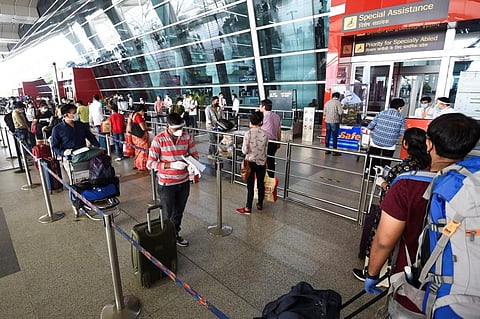

Once upon a time, all I had to do was to buy a flight ticket from a travel agent and reach the airport on time. Everything else was taken care of by the airline staff. Today, with extreme automation, I am not only doing more than half the work of the airline industry, from buying my own ticket to checking in myself, but also dealing with their ever-increasing complication quotient. Devoid of the core work of serving the customers, they are busy finding new revenue streams by putting a price tab on everything. In the process, they annoy the customer with every pop-up ad or message to buy add-on services.
About 48 hours before the flight, my email inbox, my WhatsApp chats and my SMSs are flooded with messages reminding me to check-in, interspersed with those that push sales for meals, seats, insurance and priority check-in to avoid a queue at the airport. Constant reminders to do so many things assume I have nothing to do but read and act on the airline’s messages. I am reminded to do the free web check-in or pay for the airport check-in. This is after I have checked in and they have forgotten to send me the promised boarding pass. They ask me to print the boarding pass and baggage tag. When the airline staff will print the tag themselves anyway, why put pressure on the passenger? How I wish pushing these messages were not so easy and cheap.
Every seat now comes with a price tag. If you ask airline algorithms to auto assign the seat, which as of now is free of cost, they forget to send you a boarding pass. Join the dots that airport check-in comes for a cost. If you point out the glitch in their design, the blame can easily be put on technology that remains out of bounds for those questioning. It is painful to see that the best seats remain empty while the elderly struggle to make their way to the last rows. Sometimes I wonder if they start by first assigning all the middle seats instead of the other way round. I genuinely want to see the revenue contribution of seat sales for airlines, as it comes at the serious cost of deprioritising all customer comforts.
When it comes to boarding, tech-savvy travellers beam mobile passes, cautious ones carry printed ones, others print hardly readable ones at the self-check-in counter and a small sample has the good old one—printed by the airline staff. Imagine the confusion this causes while scanning the QR code at multiple checkpoints. At least till the pandemic is around, it would be easier to have a uniform boarding pass that can be easily shown and scanned from a distance. A mobile pass is invariably touched by multiple people as phones lock many times, the QR code needs to be in sight and broad daylight blinds the screen.
Travelling norms are changing on a daily basis due to the pandemic. Vaccination certificates, RT-PCR reports, symptom checks and self-declarations have to be accommodated in the flying process. I understand it is an additional step, but now we have been into it for more than a year. Why can’t there be a single vaccination flag or code on the boarding pass that ensures no multiple checks are needed at both the boarding and landing airport? The vaccination certificate is linked to my ID, so it should be easy to verify that data. Even if it is not, put the flag on the boarding pass and be done with it.
Due to Covid, there are so many instructions on wearing masks, maintaining social distance and other norms. They are followed to an extent, but the moment you board the bus taking you to and from the aircraft, all norms are flouted by stuffing as many people as possible. It would be easier to let people walk to the aircraft—I wonder why we are not redesigning the system to let go of the buses that ply for kilometres just to cover a small walkable distance.
Airlines need to seriously work on reducing the buffer time spent before and after the flight. One is expected to reach the airport two to three hours in advance. Add 60-90 minutes to reach the airport in big cities, you are asking for three to four hours before departure on average. A 30-minute buffer is built into the flight time. It is frustrating to land 30-40 minutes before time when your pickup vehicle has not yet reached the airport, adding another hour. Not to forget the baggage retrieval time. The buffer time to flight time ratio has to be brought down.
We as consumers also need to look at trains as an option for shorter journeys; they may be less glamorous but far easier. Train stations are within the city and there are no annoying steps, no security checks, no limitations on baggage as it stays with you and no sitting in a constrained space. Metaphorically, staying on earth has its own benefits, including being sustainable. For longer journeys, hopefully airlines will make it smoother and more comfortable to fly.
Anuradha Goyal
Author and founder of IndiTales
(Tweets @anuradhagoyal)